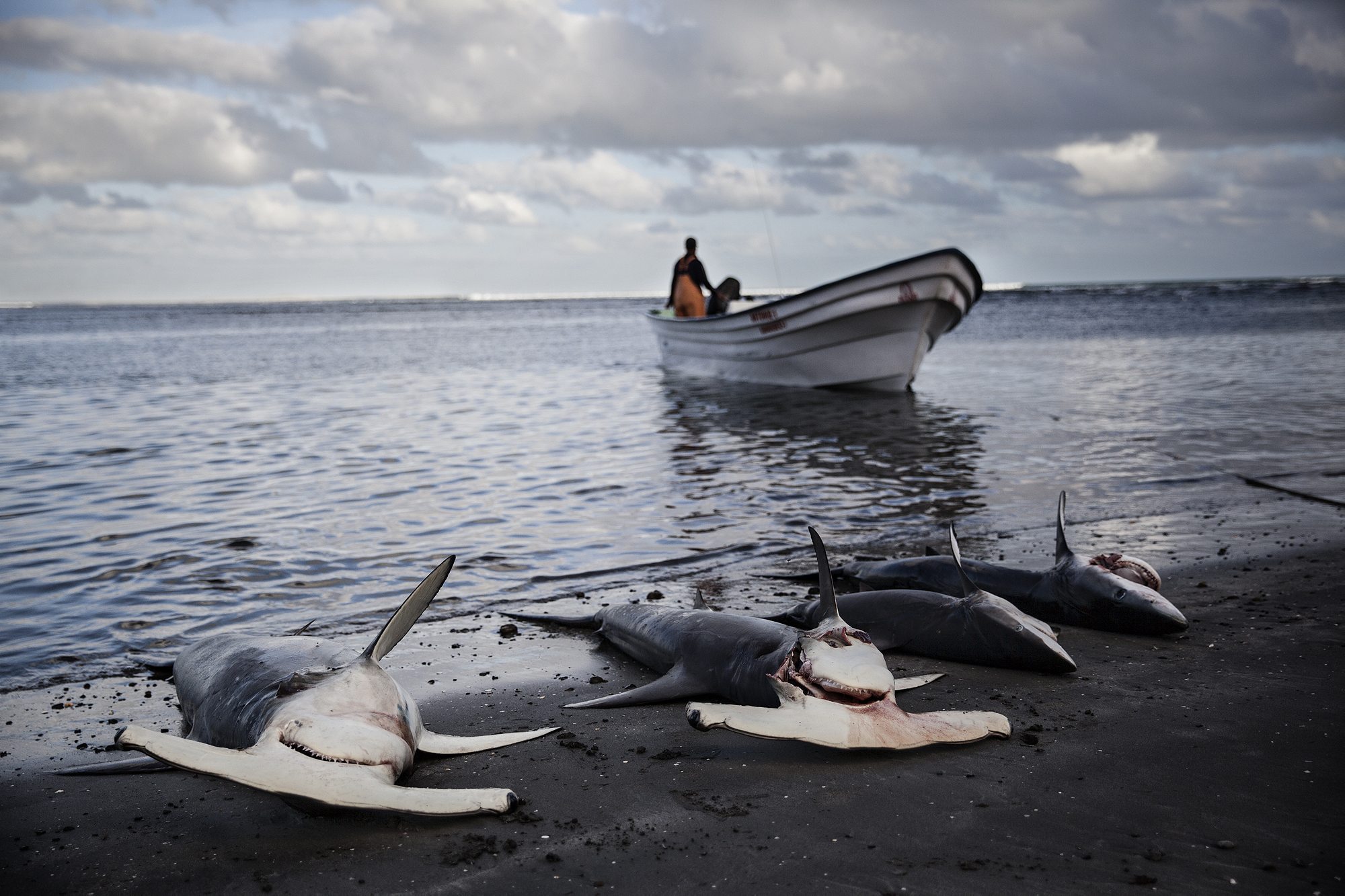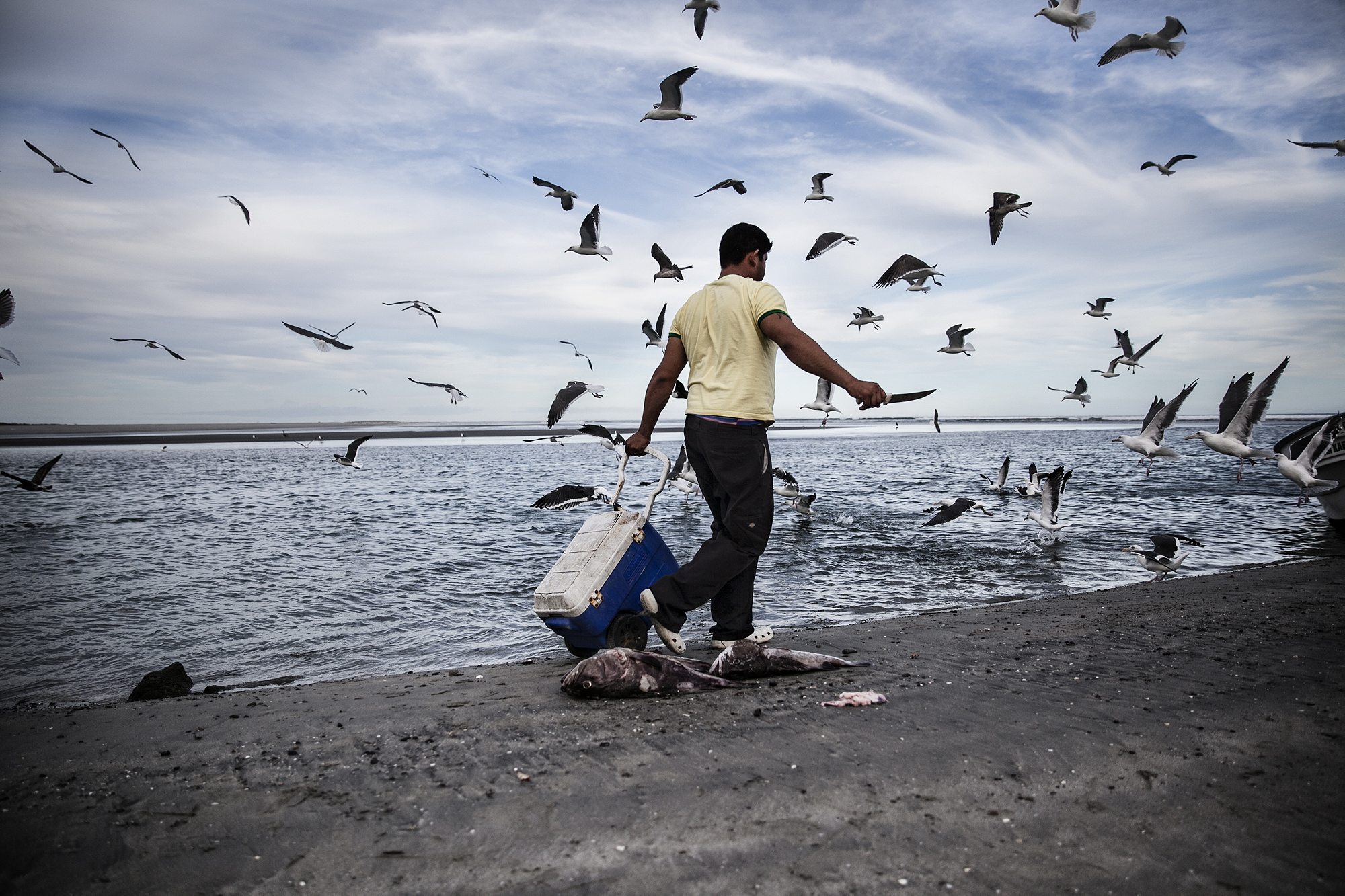For tiburoneros, Mexico’s shark fishermen, the biggest threats may be unseen.
Miedo y respeto. Fear and respect. Those are the twin values that guide Reyes Cosio’s relationship to his work. He is a tiburonero, a shark fisherman in Baja California. It is a lonely, dangerous, dwindling job.
Forget the size and strength of his prey: the ocean is the true danger. Numerous shipwrecks in recent years have finally led coastal authorities to instate an SOS system for small boats, but the rescue units are rarely able to intervene in time. Nearly every tiburonero has lost a friend or relative to the ocean—Reyes’ brother disappeared while out fishing five years ago.
Tiburoneros from El Sargento, a small village on the Baja peninsula, generally work 14 hours a day when they are out fishing. They are away from their families for weeks at a time, living at a small fishing camp on the island of Cabo San Lazaro, which is only accessible by a two-hour boat ride from the nearest village, Puerto San Carlos.
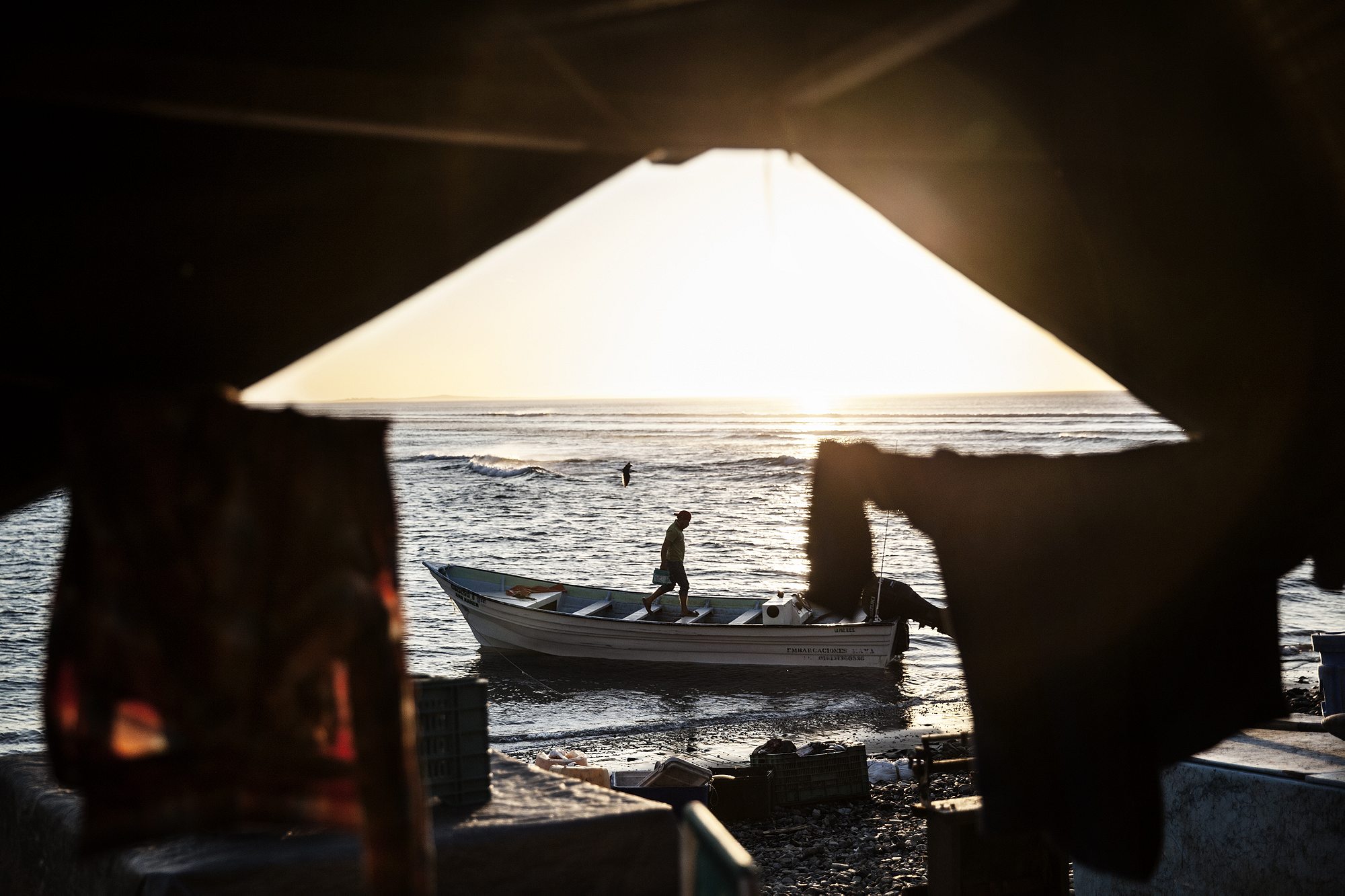
In October of 2015, photographer Federico Vespignani spent a month living with the tiburoneros at the camp on Cabo San Lazaro. A large island perched at Baja’s elbow, it shelters the Magdalena Bay but is itself exposed to the open ocean, the last stop before Hawaii. The camp consists of little more than a few shacks cobbled together from beams and sheets of metal. There is no running water or electricity, just a few solar panels that allow the fishermen to listen to the radio and charge their cellphones. At night, coyotes roam the island in packs.
Once based on the island, the tiburoneros’ days are both harrowing and routine. Each fishing crew consists of two men, one to drive the boat and the other to club the sharks to death with a baseball bat once they are hooked. They rise at 5 am and load their pangas: small fiberglass boats with outboard motors and little in the way of protection from the waves. (The boats’ owners generally don’t fish; they’re responsible for the distribution of the meat and fins.)
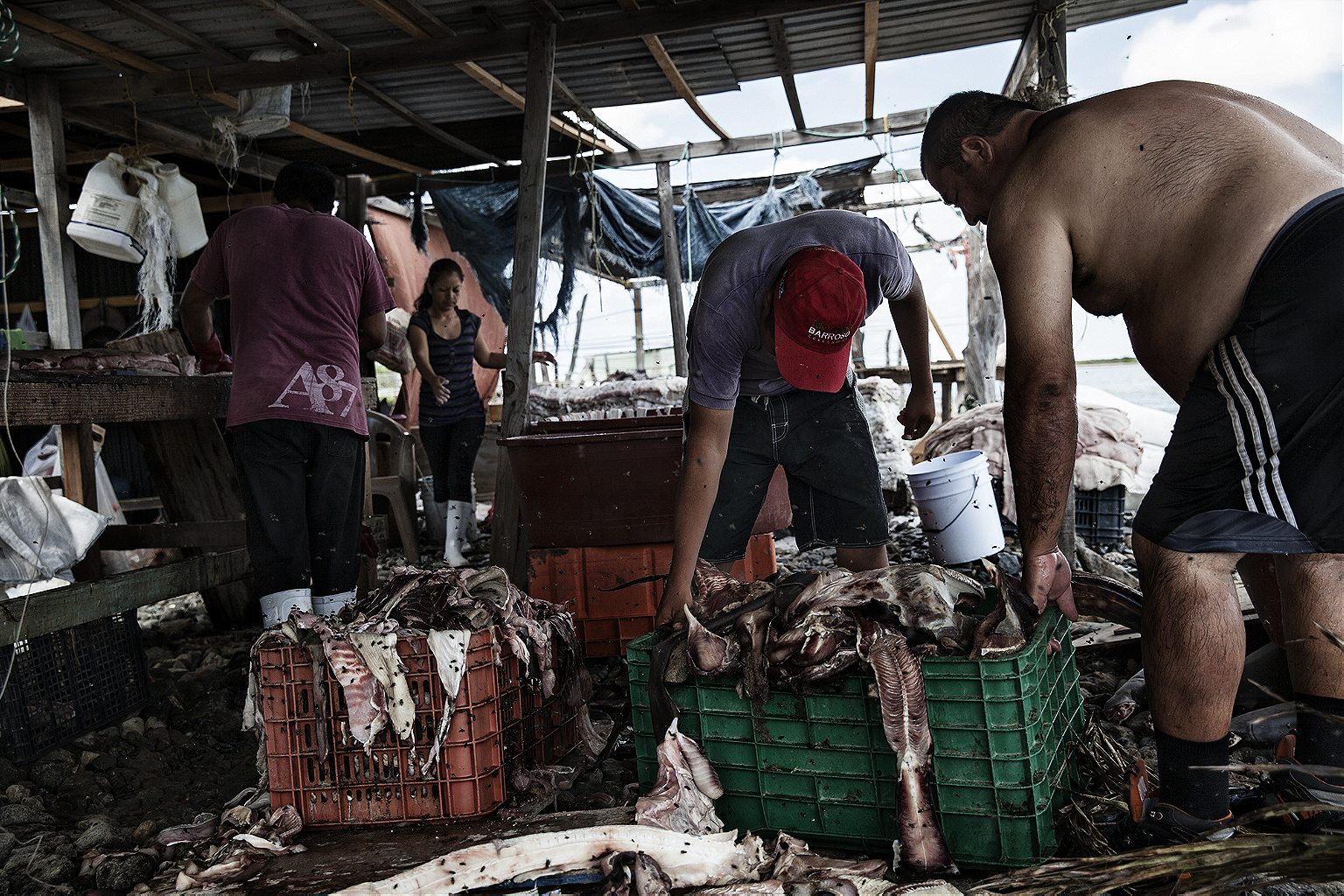
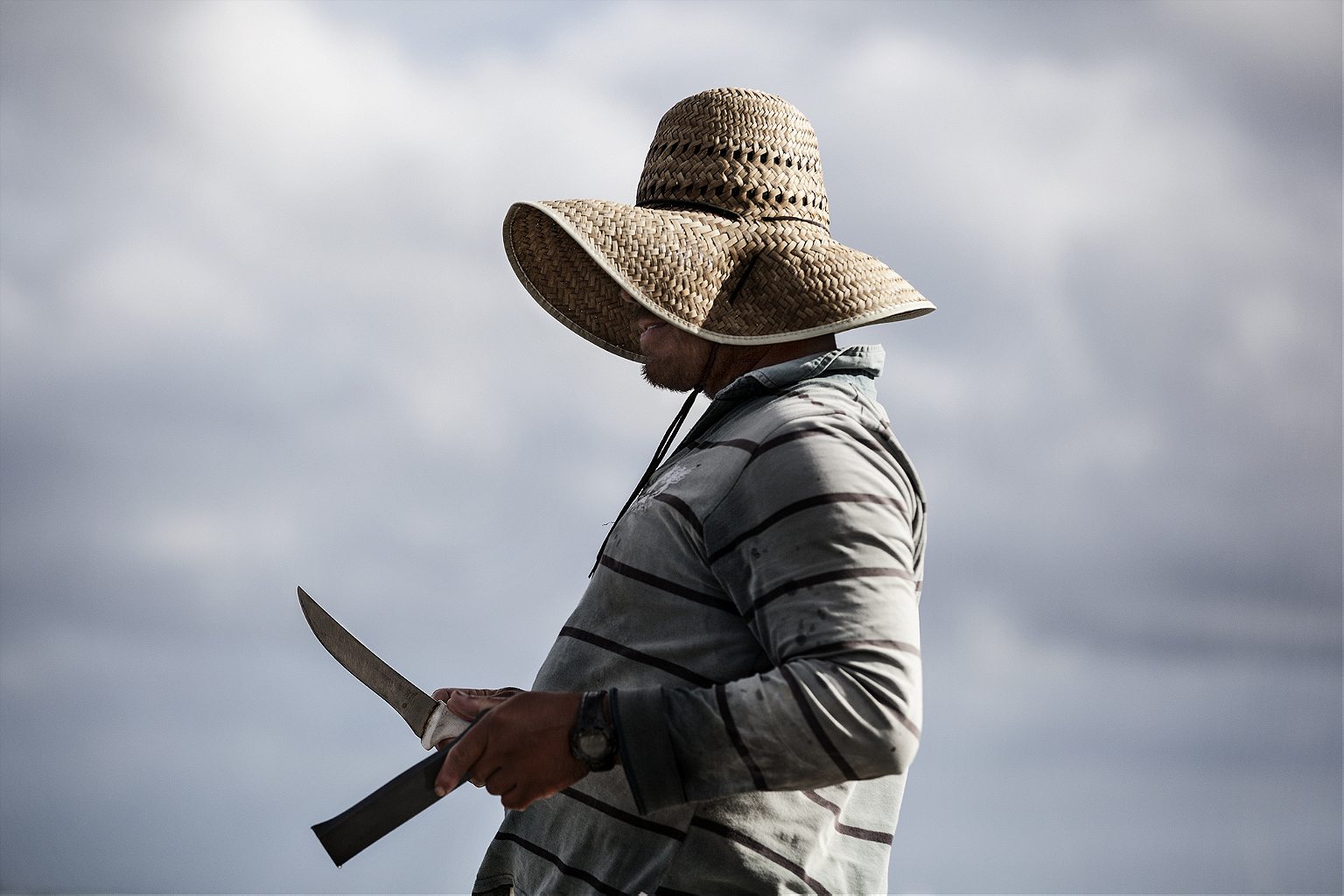
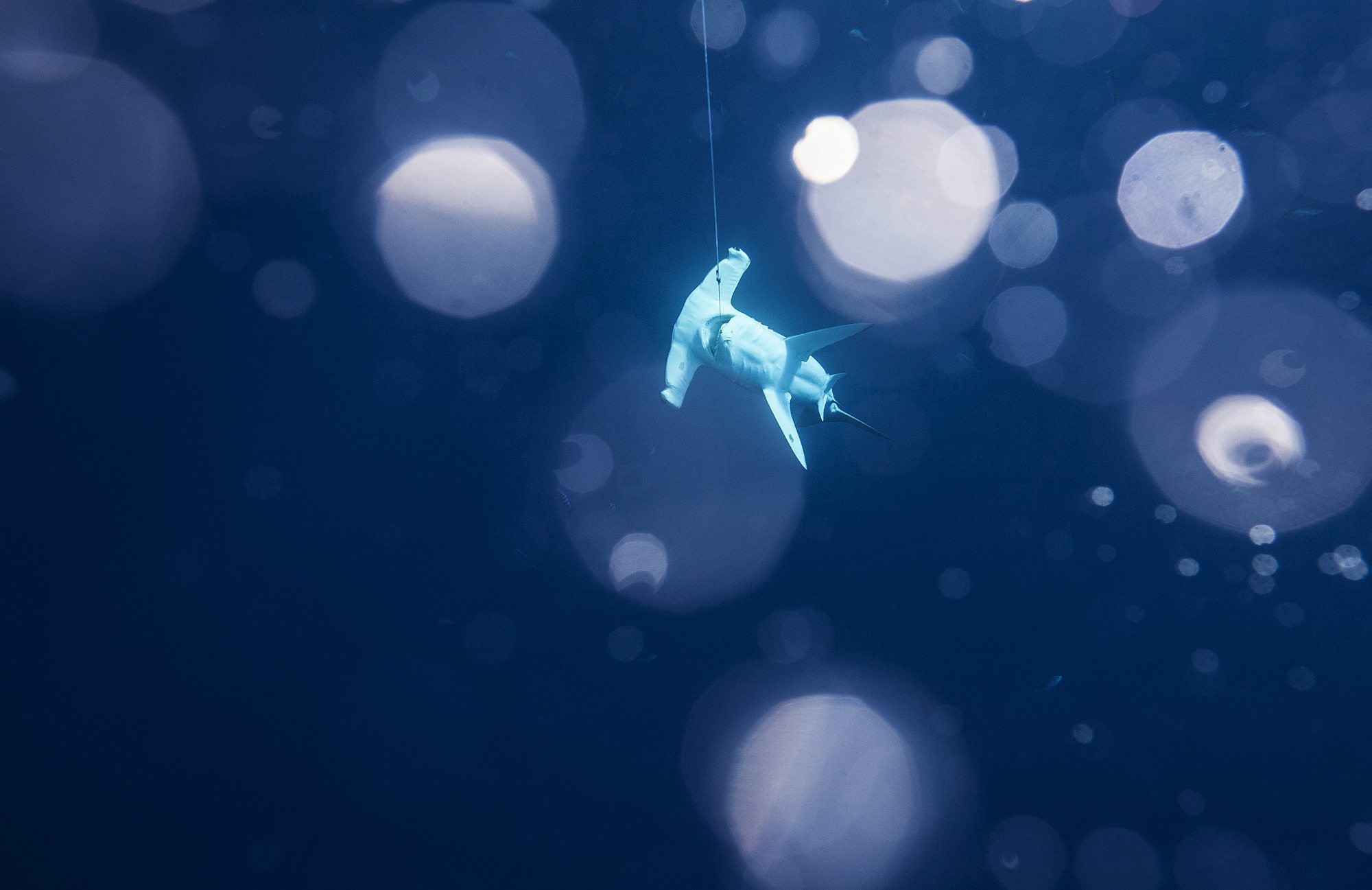
There are fewer sharks in the ocean than there once were, thanks in large part to overfishing. The tiburoneros are forced into deeper and deeper waters in order to catch their prey. Today, they use a hook system called “simplera” to catch shark up to 30 miles offshore. After spending their mornings fishing for bait for the simplera hooks, the crewmembers head far offshore to hook the sharks, kill them and haul their bodies into the pangas. Then they head back to Cabo San Lazaro as the sun goes down. Back on the island, the tiburoneros come together, working as one in order to clean the sharks and put their meat on ice. Once the day’s work is finally done around 8 pm, they are able to relax, chat and pass a joint around.
In the following days, the sharks will be transported back to the mainland, where they will be threaded, salted, and shipped throughout Mexico and onto Asia to feed the appetite for delicacies like shark fin soup. The market for shark is still good, and other types of fish are dwindling, causing many traditional fishermen to turn to shark fishing in order to make ends meet. The result: shark numbers are now at an unprecedented low in Mexico, with some species suffering up to an 80 percent loss of their original population. Of all the threats to the fishermen and their livelihood, the collapse of the shark population is the most pressing.
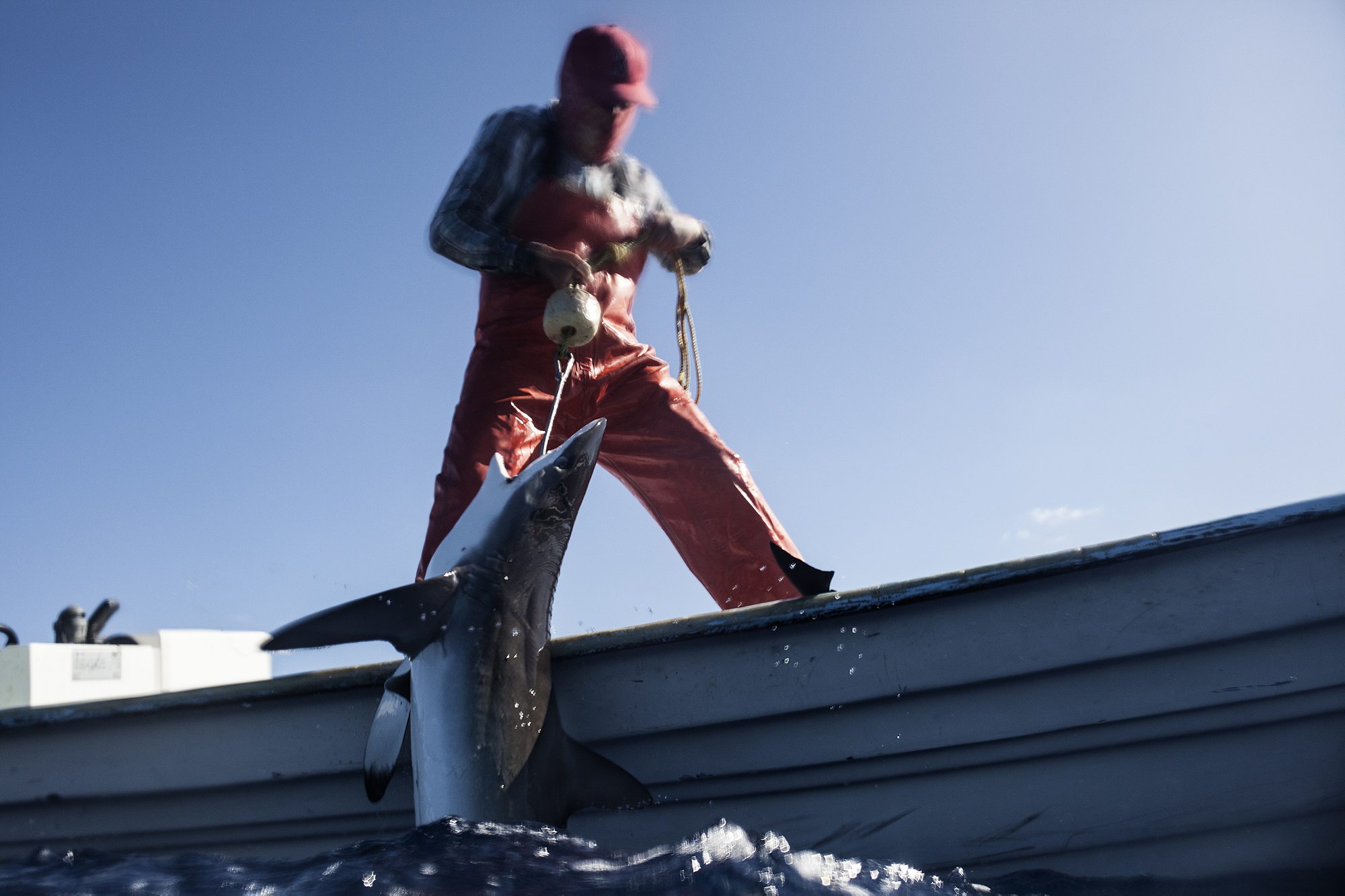
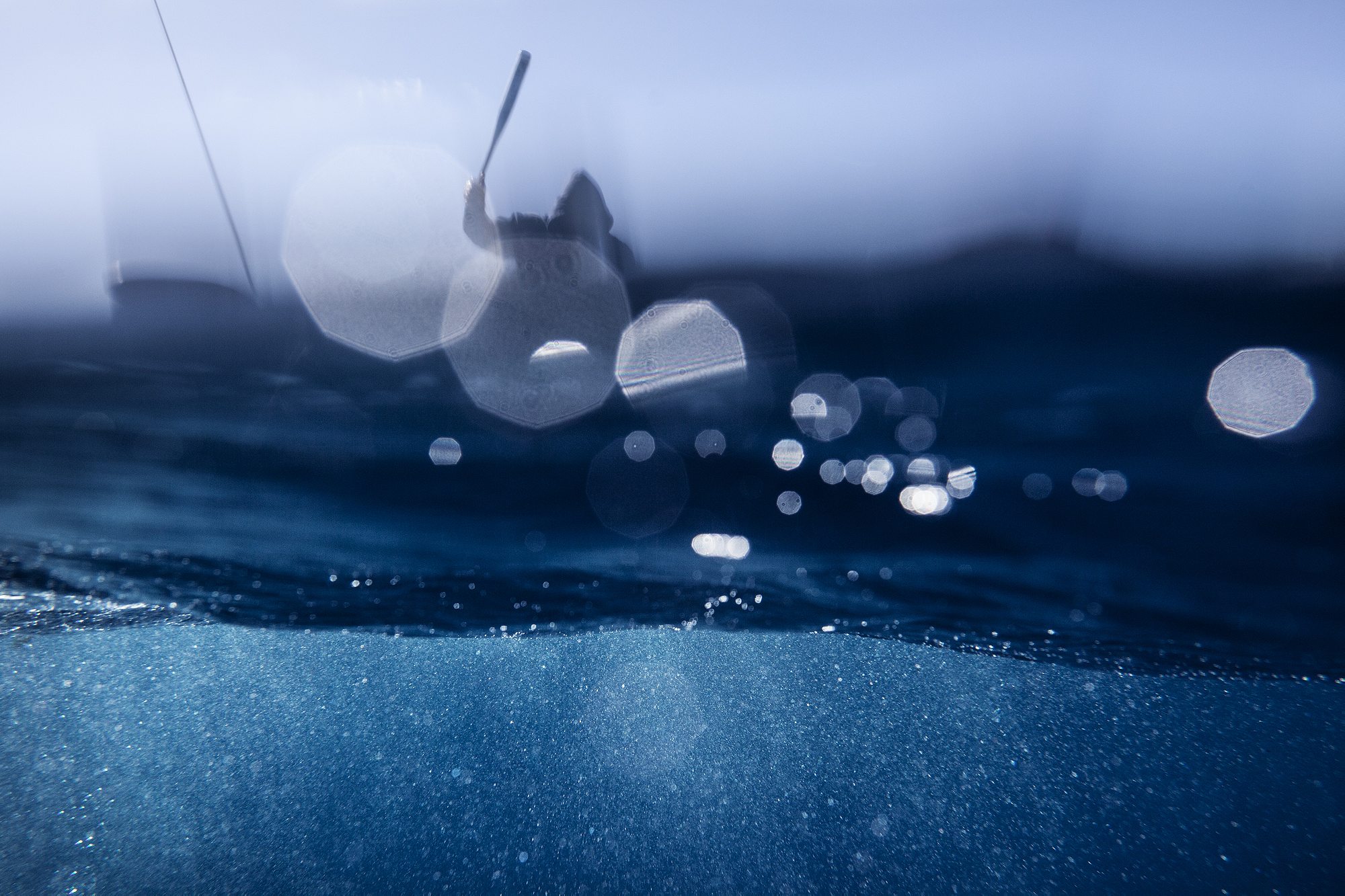
In response, the Mexican government has imposed strict limits on the tiburoneros. Environmental organizations have also begun adding pressure, and some of Puerto San Carlos’s tiburoneros are shifting away from shark fishing in favor of tourism.
One Mexican NGO is working to develop a sustainable shark-diving operation, but the program is far from thriving: only one family of fishermen is currently involved. Most tiburoneros are skeptical of the NGO’s conservationist underpinnings and ability to transform the local economy. Some young men, looking for another way out, speculated about becoming traditional fishermen or even hit men for narcotraffickers, says Vespignani. For now, though, there’s nothing to do but keep fishing, as long as there are sharks in the deep. —Piper French
